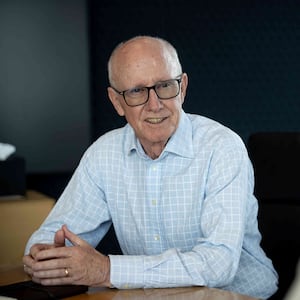Business
Wayne Boyd Shares Insights from His Tenure on 167 Boards

Wayne Boyd, a prominent figure in corporate governance, has served as a director on an impressive 167 boards throughout his career. While he claims he has never actively tracked this number, it highlights his extensive experience and influence in the business sector. Boyd is particularly well-known for his role at Telecom, now known as Spark, where he played a pivotal part in transforming New Zealand’s largest communications company.
In addition to his tenure at Spark, Boyd has held directorships at several other notable organizations, including Meridian Energy, Auckland International Airport, Freightways, and Vulcan Steel. His varied experiences across these companies provide valuable insights into effective corporate governance and leadership.
Lessons from a Seasoned Director
According to Boyd, successful directors must prioritize adaptability and continuous learning. The ability to navigate change is essential, especially in rapidly evolving industries like telecommunications and energy. He emphasizes that directors should not only focus on financial metrics but also consider the broader impact of their decisions on stakeholders and the community.
Boyd advocates for a strong board culture rooted in open communication and collaboration. He believes that fostering a supportive environment encourages diverse perspectives, which can lead to more informed decision-making. This principle has guided him in his dealings with various boards, enabling him to effectively address challenges and seize opportunities.
In his experience, directors should also be proactive in understanding the industries they oversee. Boyd encourages ongoing education and engagement with industry trends. This knowledge allows boards to make strategic decisions that align with the company’s long-term goals.
Impact on New Zealand’s Corporate Landscape
Boyd’s influence extends beyond individual companies. His work at Spark, for instance, was instrumental in reshaping New Zealand’s telecommunications landscape. Under his guidance, Spark embraced innovative technologies and customer-centric strategies, which significantly enhanced its market position.
His contributions to Meridian Energy and Auckland International Airport further exemplify his commitment to sustainable practices and growth. Boyd has consistently promoted the importance of environmental responsibility and ethical governance, which are increasingly vital in today’s business world.
Boyd’s extensive experience offers valuable lessons not only for aspiring directors but also for established leaders looking to refine their governance skills. As he reflects on his career, Boyd emphasizes that the journey of a director is one of continuous improvement, underscoring that effective leadership is built on a foundation of learning, adaptability, and ethical responsibility.
In conclusion, Wayne Boyd’s insights provide a roadmap for effective corporate governance that resonates across various industries. His emphasis on adaptability, collaboration, and ethical decision-making serves as a guiding principle for directors aiming to make a positive impact on their organizations and the broader community.
-

 World4 months ago
World4 months agoTest Your Knowledge: Take the Herald’s Afternoon Quiz Today
-

 Sports4 months ago
Sports4 months agoPM Faces Backlash from Fans During Netball Trophy Ceremony
-

 Lifestyle4 months ago
Lifestyle4 months agoDunedin Designers Win Top Award at Hokonui Fashion Event
-

 Entertainment4 months ago
Entertainment4 months agoExperience the Excitement of ‘Chief of War’ in Oʻahu
-

 Sports4 months ago
Sports4 months agoLiam Lawson Launches New Era for Racing Bulls with Strong Start
-

 World5 months ago
World5 months agoCoalition Forms to Preserve Māori Wards in Hawke’s Bay
-

 Lifestyle4 months ago
Lifestyle4 months agoDisney Fan Reveals Dress Code Tips for Park Visitors
-

 Health4 months ago
Health4 months agoWalking Faster Offers Major Health Benefits for Older Adults
-

 Politics4 months ago
Politics4 months agoScots Rally with Humor and Music to Protest Trump’s Visit
-

 Top Stories5 months ago
Top Stories5 months agoUK and India Finalize Trade Deal to Boost Economic Ties
-

 Health2 months ago
Health2 months agoRadio Host Jay-Jay Feeney’s Partner Secures Visa to Stay in NZ
-

 World5 months ago
World5 months agoHuntly Begins Water Pipe Flushing to Resolve Brown Water Issue









